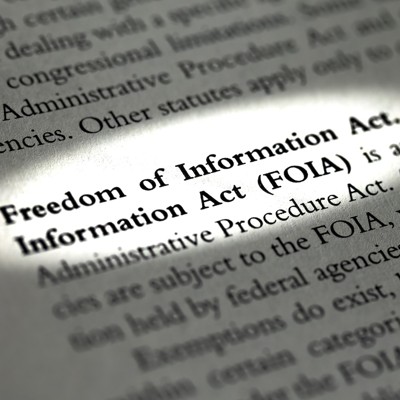When you visit the newly created FOIA.gov website, you will see a variety of statistics regarding FOIA requests and processing times. In 2023, the average processing time for a simple request across all agencies ranged from a minimum of 1 day to a maximum of 636 days.
Having this information readily available is a good thing, thanks to the FOIA Improvements Act of 2016 and the new online unified portal for FOIA requests it created. The fact that we know that completing FOIA requests takes almost 30 times longer than the statutory requirement means that it is clear that further improvements are needed.In honor of Sunshine Week, an annual reminder of the public's right to access government records, now is the time to discuss modernizing FOIA
It has been eight years since the FOIA law was last amended. Technology and user experience expectations have come a long way since the iPhone 7 was popular. Investments in policy, people and processes are essential to improving laws that have not yet reached their full potential. This was the cornerstone of my tenure while I served as Chief FOIA Officer at the Department of Homeland Security.
To create a uniform compliance framework for all government agencies subject to the law, similar to how the National Institute of Standards and Technology provides a standardized cybersecurity and privacy compliance framework. You will need to update your FOIA again. The FOIA Compliance Framework , a loose term coined for this initiative, strengthens FOIA's transparency obligations by providing uniformity and consistency across the federal government.
This FCF includes all three attributes used to define an organization's strong operational readiness: policies, people, and processes.
Existing FOIA legal provisions serve as the FCF's overarching policy umbrella. We will streamline the interpretation and guidance of this policy under his one governing body, such as the United States Attorney General. Government agencies will be discouraged from deviating from these guardrails. This standardized approach in interpretation could eliminate disparate treatment of her FOIA requests for similar language sent to different agencies.
FCF will also outline requirements for the use of federal employees (and contractors, as appropriate) in the FOIA request lifecycle. It will address opportunities for training, retention, and career growth, and improve what can often be a monotonous record-processing task into something interesting and purposeful. For example, you may be able to implement inter- or intra-departmental job rotation programs or encourage continuous improvement metrics. It also fosters collaboration among stakeholders within each agency, such as records managers and declassifiers, when adjudicating requests.
Most importantly, FCF relies on processes that include technologies such as artificial intelligence (AI) to adapt to modern times. At a recent meeting of the Council of Chief FOIA Officers, the Department of Justice stated that the need for technology such as AI is essential to increasing the automation of record processing times. A risk-based approach not only reduces response times for requesters, but also acts as a triage bot, storing complex requests for human oversight and using technology to quickly respond to simple requests. There is a possibility. Given the right conditions, harnessing the power of AI is the ideal solution and the new normal in this digital age.
A modern FOIA must adopt changes that are uniform and consistent across all covered institutions. Using the NIST framework as inspiration, these investments in FOIA will further increase trust in the federal government as public opinion polls show that trust in the federal government is returning to near all-time lows.
Americans have come to expect reasonable transparency in their dealings with government agencies. FOIA has become a way to ensure that the public is provided with a level of thorough information in a timely manner that does not jeopardize other coveted aspects of American life. Standardizing all variables of his FOIA experience across all agencies is a natural progression of the law's maturation.
Dena Kozanas is General Counsel and Chief Privacy Officer at MITER and former Chief Privacy Officer/Chief FOIA Officer at the Department of Homeland Security.


